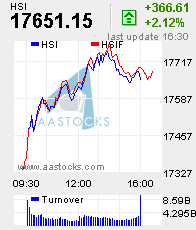2008 Credit Crisis vs Government Bail-out

One of the oldest and prestigious investment banks in the United States, Lehman Brothers was filing for bankruptcy protection, after suffering multi-billion dollar losses largely in the US mortgage market and oweing debts totalled to 6.13 hundred billion. In addition, the Bank of America said it had agreed to buy the world's largest brokerage firm, Merrill Lynch, for about 50 billion US dollars, and the world's biggest insurance company, AIG, was seeking emergency funding from the US central bank, the Federal Reserve. It was followed by the US govt bail-out plan of the Fannie Mae and Freddie Mac in early September. The credit crunch seems difficult to be brought to an end and the credit crisis spread globally that it was described as the 'monetary tsunami' originating from US. The latest news was Bush government proposed to use US700 billion dollors to bail out the deteriorated mortgage loans.
What is going wrong to the so-called free market economic operation nowadays? In the absence of the intervention (bail-out) of the central banks, things will be further deteriorating as nobody is willing to lending out money and resulting in inadequate liquidity in the circular flow. In return, the economic activity will seemingly come to a halt and the asset prices will then be going down further. What a horrible scene then!
It is incorrect for the central banks arbitrarily to cut the interest rate or to bailout the problematic institutions once a financial crisis prevails from the view point of a believer of the efficient-market theory. However, we face a dilemma. Without the help of central government, the economy will inevitably collapse and contract further. However, such government intervention will justify the wrong doing of the excess speculation and heavy trading of the high leverage financial derivatives by investment banks nowadays. It creates a moral hazard and further economic bubble is inflating leading to booms and busts as a result.
Should the central banks respond by doing something, I think the market today are not as efficient as some believe. In the midst of a monetary crisis, it seems the market itself is extremely painful to re-adjust without any government help. I think it is due to the fiat-money-standard instead of the gold-standard adopted in 1971 following the United States' suspension of convertibility from dollars to gold. The Bretton Woods agreement made in 1944 for each country to adopt a monetary policy that maintained the exchange rate of its currency within a fixed value in terms of gold (price pegged at US$35/oz of gold and they were convertible) collapsed then. The recent market chaos have shown that ultimately it does get the credit crunch to come once the drop in public confidence prevails. And in turn, it may lead to deep economic recessions.
In view of the credit growth far outweighing the economic growth nowadays, I assert the necessity of restraining excessive credit creation as a goal to relieve the danger of economic "booms and busts". Moreoever, the people should be lusted to saving more money instead of loaning more. In other words, a painful adjustment is justified.
The latest report was US Treasury Secretary Paulson had drafted out a plan of using US$700 billion bailout money to purchase the US troubled assets so as to provide liquidity injection to the banks. Nevertheless, I am quite sceptical that the US$700 billion bailout plan will really end the credit crunch.
Chinese version at http://wongtc.blogspot.com/2008/09/2008-vs.html










